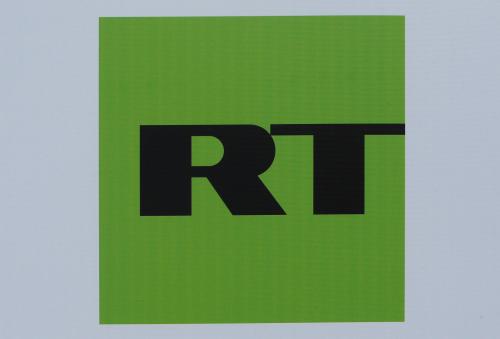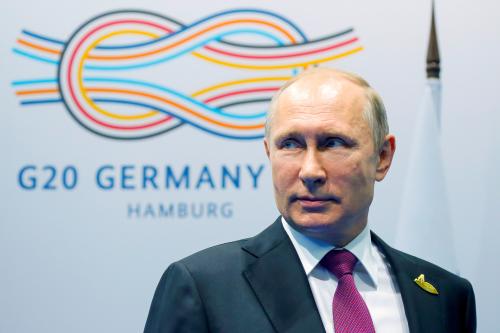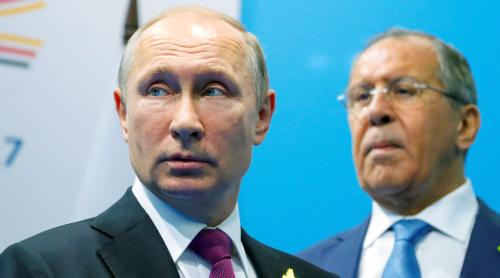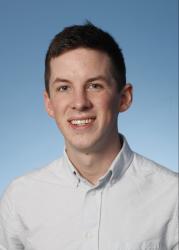This interview is adapted from a segment in the Brookings Cafeteria podcast called “Coffee Break,” where a scholar new to Brookings introduces their background, research interests, and offers book recommendations. The transcript has been slightly edited from the audio recording.
My name is Jamie Kirchick. I’m a visiting fellow at the Center on the United States and Europe as well as the Project on International Order and Strategy. I’m a correspondent for The Daily Beast, I’m a columnist for Tablet magazine, and I write a bunch for other publications as well.
Q: What inspired you to become a scholar?
 A: What inspired me to pursue my career in the journalism-think tank world I guess is that I’m not really qualified to do anything else! Journalism for me was always a chance to see the world—to travel a lot, to investigate issues that are of interest to me—and it’s allowed me to do that. Over the past 10 years since I graduated college I haven’t really done anything else.
A: What inspired me to pursue my career in the journalism-think tank world I guess is that I’m not really qualified to do anything else! Journalism for me was always a chance to see the world—to travel a lot, to investigate issues that are of interest to me—and it’s allowed me to do that. Over the past 10 years since I graduated college I haven’t really done anything else.
I’ve been enormously lucky to be able to combine the world of journalism with think tank and public policy, and I’ve been doing that for the past five or six years working as a journalist but based at a think tank institution. I often say that working at Brookings is sort of like being on the faculty of one of the top universities in the world without having to teach undergraduates or deal with the vicious faculty politics. It’s a very collegial place.
My first real job in journalism was working at The New Republic magazine here in Washington. I was there for about three years and there were some real serious financial difficulties around the crash of 2008 and I was laid off. I wound up by real chance working for Radio Free Europe/Radio Liberty, which is based in Prague, and I had a great job there.
I moved out to Prague knowing very little about that part of the world, about the former Soviet Union. I studied the Cold War and had a real interest in that 20th century history. In university I studied under John Gaddis who’s probably the premier Cold War historian. So I definitely had an academic interest in it but not real experience.
So I wound up in Prague and I had this amazing opportunity as a writer-at-large to travel the former Soviet Union. This was around 2010-2011 so it was the time of the Obama administration “reset,” and there were a lot of hopes that relations between the U.S. and Russia would improve. So I had a front row seat to see how that was not working. Now obviously with what’s been going on in our own domestic politics it didn’t come as a huge surprise to me having been in that part of the world and traveled all around for quite some time. So having lived there and experienced it, that’s really how I would say my real professional working interest in Europe started.
Q: What do you think is the most important issue we’re facing today?
A: I think it would be –there’s so many it’s hard to choose from—but I think what I see at the root of lots of them is a turn toward illiberalism, a turn away from liberal democracy. And if you look at many of the maladies we’re facing, whether it’s neo-authoritarianism, if it’s the rise of anti-Semitism, if it’s racism in society, I think a lot of it can be traced back to this abandonment of the liberal idea. Certainly in this country but also definitely in Europe where I wrote a book called “The End of Europe.”
The appeal that alternative forms of government seem to be having—namely the kind of Chinese state authoritarian capitalism model, the Russian strongman model, just sort of the general illiberal models of organizing our lives as societies—unfortunately seems to be gaining traction and popularity.
Q: What are you working on now?
A: I’m working on lots of different things. Certainly the future of the European project is something that we’re very interested in at the Center on the United States and Europe. The transatlantic relationship [and] how that’s going to change under the Trump administration. Are there going to be new features of this relationship? How does it have to change? I’m very interested in Russian interventions in democratic societies. This is something I’ve been interested in since I started working at Radio Free Europe long before it became a very popular topic. Russian propaganda, disinformation, fake news—all of that I think falls under that category as something I’m interested in.
I’m also interested in the future of American foreign policy and how domestic politics will affect that. So, how will the reorientation or the realignment even of the Republican and Democratic parties, if there are serious realignments, affect American foreign policy going forward? So all those things are of interest to me.
Q: If you could recommend any book to our listeners what would it be?
A: Well aside from my own book, “The End of Europe: Dictators, Demagogues, and the Coming Dark Age” available on Amazon and all fine bookstores, there’s a book I keep on recommending to lots of people. It’s written by a friend of mine in 2014. It’s about Russia, and it’s called “Nothing Is True and Everything Is Possible” by my friend Peter Pomerantsev.
It’s a great title and it’s such a Russian book because it was written about Russia under Vladimir Putin and Peter was a sort of reality television show producer and he provides this really rollicking but also very erudite fascinating tale of how Russia became the sort post-modern dictatorship.
And reading it now in 2017 in America, just seeing the cynicism of the Putin regime and how it managed the democratic system which is what they call it there, it’s very eerie. Reading it now in the United States when we also have a president unfortunately who seems to have a similar view towards facts and reality. So it’s a brilliant book and I can’t recommend it highly enough.
The Brookings Institution is committed to quality, independence, and impact.
We are supported by a diverse array of funders. In line with our values and policies, each Brookings publication represents the sole views of its author(s).





Commentary
Meet James Kirchick, visiting fellow in the Center on the United States and Europe
January 18, 2018